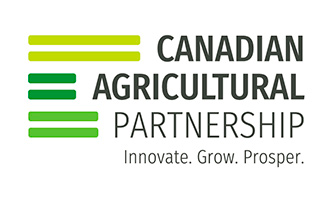A new round of Canola Agronomic Research Program (CARP) projects have been announced for 2022 program year. Officially beginning on April 1st the fourteen new projects will span one to five years, depending on the study. As with all CARP research, these projects will support canola agronomic research focused on increasing yield and profitability, reducing production risk and enhancing sustainability.
Read more on the 2022 CARP program in this ‘Collaboration enables more than $3.2 million in grower-funded canola agronomic research in 2022‘ article release.
Utilizing the research priorities indicated by Canola Council of Canada, Alberta Canola, Manitoba Canola Growers, SaskCanola, the Western Grains Research Foundation (WGRF) and Results Driven Agriculture Research (RDAR), the 2022 CARP projects cover abiotic stress tolerance, crop physiology and plant establishment, improving nutrient management and reducing nitrous oxide emissions, weed management, integrated disease management and insect-related topics.
The Canola Agronomic Research Program, which is administered by the Canola Council of Canada, acknowledges all the funders of this year’s projects, which include Alberta Canola, Manitoba Canola Growers, SaskCanola, the Western Grains Research Foundation (WGRF) and Results Driven Agriculture Research (RDAR).
New canola research beginning in 2022
The studies going ahead under 2022 CARP program are:
- Continue monitoring Leptosphaeria maculans populations following the introduction of resistant genes Rlm2, Rlm4 and Rlm7 for effective resistance deployment on the Canadian Prairies
- Drought tolerance in canola through modulating the Kanghan (KH) gene family
- Updating the critical weed free period in canola
- A meta-analysis of small-plot trial data to examine the relationship between crop development and environmental conditions in canola
- Generation of canola lines with increased heat and drought tolerance by regulating phospholipid: diacylglycerol acyltransferase activity
- Biocontrol of blackleg using carnivorous bacteria
- Balancing economic, action, and seed production thresholds for glyphosate-resistant kochia in canola
- How does fall-applied nitrogen fertilizer influence soil-emitted nitrous oxide emissions during the over-winter and spring thaw period in the semi-arid Prairies?
- Screening false cleavers from the Prairie Herbicide Resistance Surveys for quinclorac and glyphosate resistance
- Develop and assess different strategies to reduce the impact of pollen beetle Brassicogethes viridescens (Coleoptera: Nitidulidae), a new invasive insect pest on canola
- Effects of heat and drought on canola – pollinator interactions and crop yield
- Climate change resilience of Prairie oilseed crops and their below-ground microbiota under drought stress in controlled and field environments
- Deploying calcium-dependent protein kinases to fight canola pathogens
- Climate-smart canola: quantifying soil- and fertilizer-derived nitrogen sources and greenhouse gas emissions under canola hybrids
Check out a brief overview of each of these projects by clicking the hyperlinked titles above. Project summaries will be updated as the research progresses.
Additional research opportunities
- Preparations are already underway for the 2023 CARP program, and details will be posted to the CARP page in the upcoming weeks.

- To build on the success of past Canola AgriScience Research Cluster programs, the Canola Council of Canada is currently requesting letters of intent (LOI) submissions for the next Canola Cluster, which anticipated to run from April 1, 2023 to March 31, 2028. The next Agricultural Policy Framework, outlined in The Guelph Statement, identifies five priority areas: climate change and environment; science, research, and innovation; building sector capacity, growth, and competitiveness; market development and trade; and resiliency and public trust.
- LOI submissions are due March 7, 2022.
- LOI templates, submission guidelines and more can be found on the Canola AgriScience Cluster page.
Published February 24, 2022










